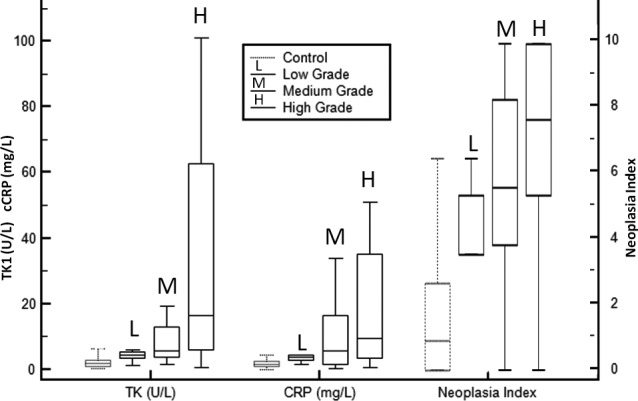
Published in the Journal of Veterinary Internal Medicine, Selting et al. examined the use of thymidine kinase, type 1 (TK1) and canine specific C-reactive protein (cCRP) in a wide range of hematological and solid tumors. There were 253 tumor-bearing dogs and 156 without cancer.
Cancer: Dysregulated Proliferation
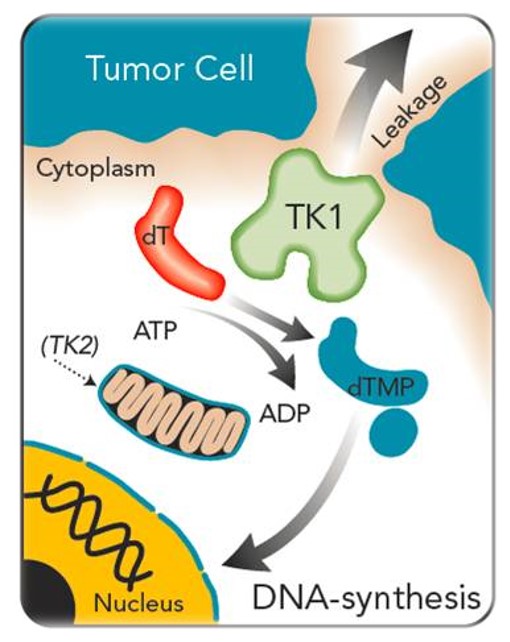
TK1, an enzyme responsible for the production of thymidine during cell division, is a proliferation marker of dysregulated replication – a hallmark of cancer. TK1 has been extensively studied in both human and companion animal lymphoma. In LSA, TK1 values can get exceedingly high.
This study demonstrated that TK1 is also elevated in a wide range of tumors, including, HSA, histiocytic sarcoma, and many forms of carcinomas and sarcomas.
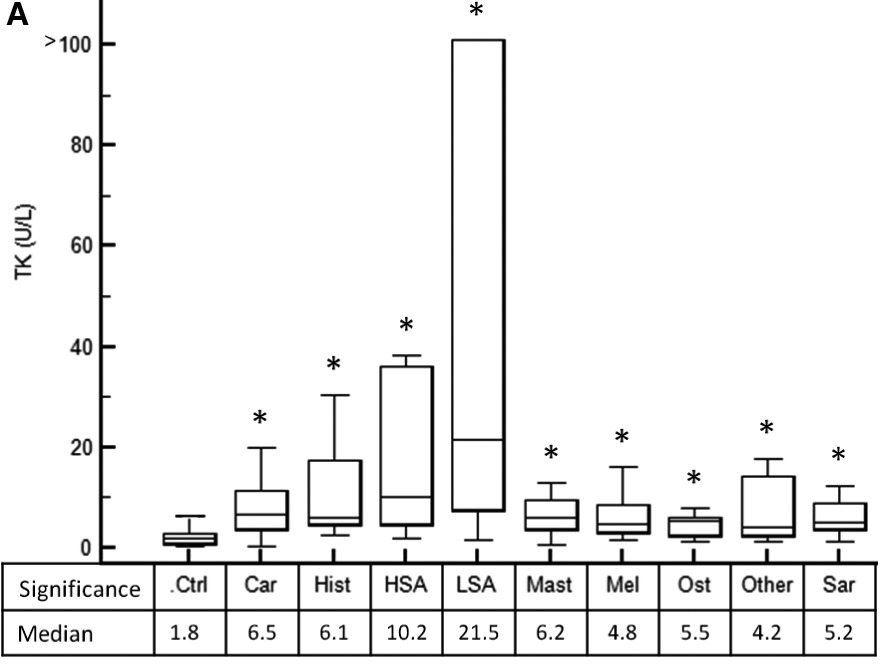
Cancer: Inflammatory Disease
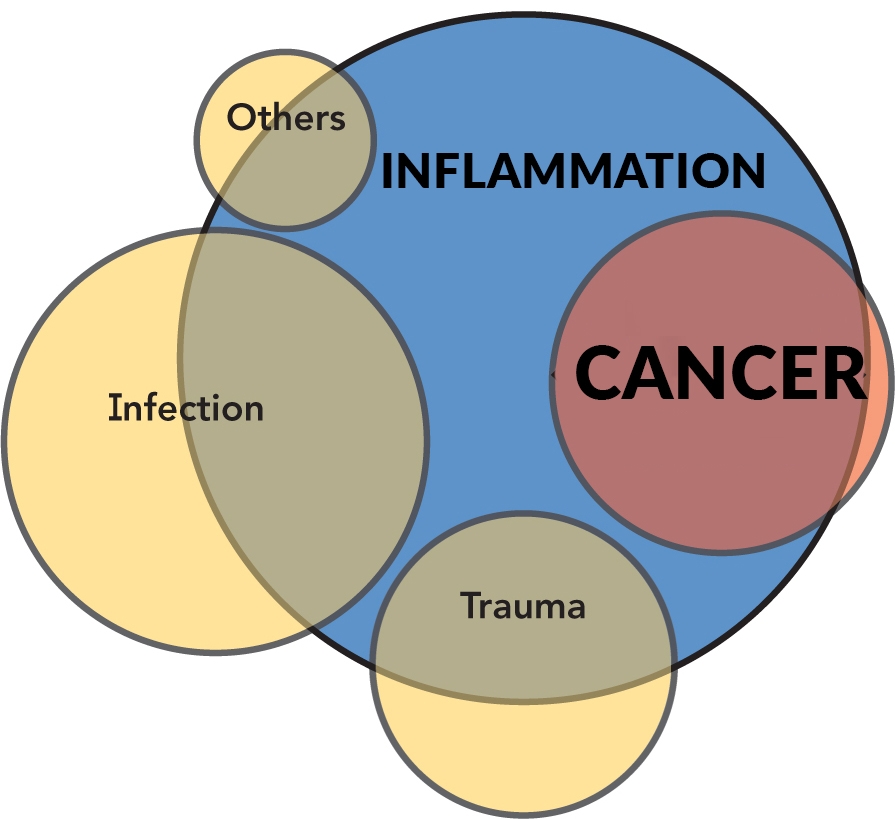
Cancer is an inflammatory disease. When inflammation is present, cancer may be the cause of that inflammation. The major systemic marker of inflammation in dogs is C-Reactive Protein (cCRP). cCRP is an acute phase protein, produced by the liver in response to acute phase reactants such as cytokines and interleukins.
Inflammation is a functional part of cancer pathogenesis and aids in the initiation, growth, and metastatic process. cCRP is proportional to the intensity and duration of the inflammatory stimulus.
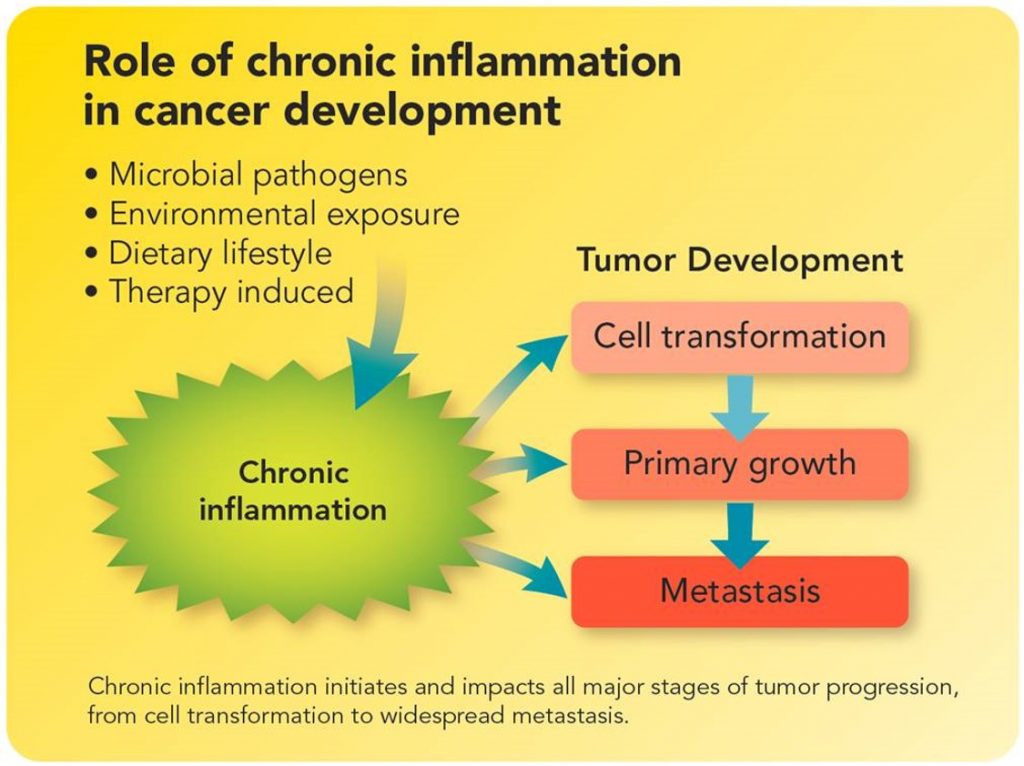
This study demonstrated that cCRP is elevated in a wide range of tumors, particularly, LSA, HSA, histiocytic sarcoma, melanoma, and various forms of carcinomas and sarcomas.
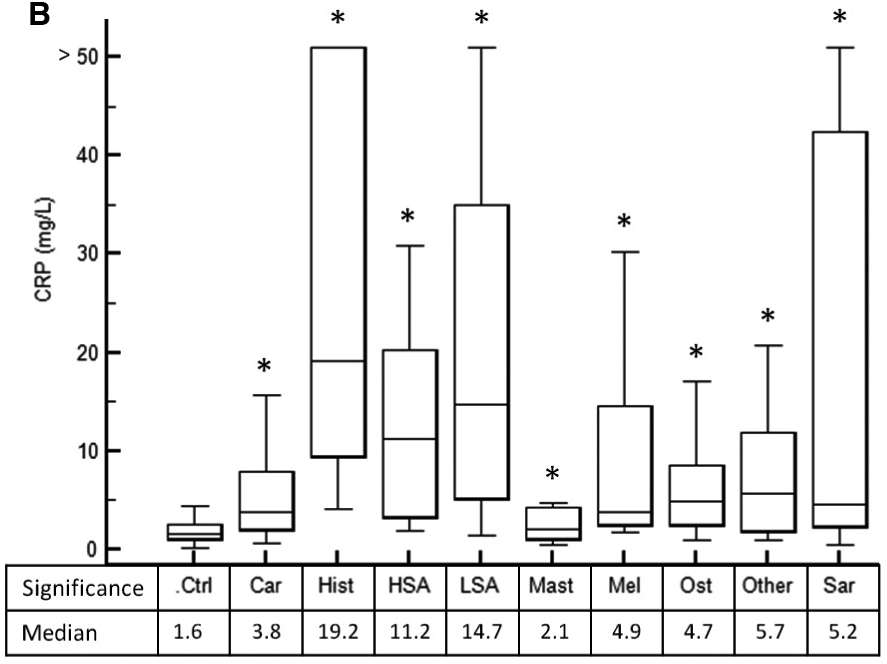
Multimarker Approach to Cancer Diagnostics
Multi-marker integration is routinely used in human medicine. The diagram below illustrates how the union of TK1/CRP (Neoplasia Index®) aids in the removal of false positives thus improving specificity. When the proliferation marker TK1 is elevated in conjunction with elevated inflammatory marker cCRP, the likelihood of malignancy increases.
Neoplasia Index®: 0- 10
0= Perfectly normal dog | 10= perfect score for cancer
This study demonstrated that the Neoplasia Index® improves specificity over TK1 alone across all tumor types except stage 1 mast cell tumors. Neoplasia Index 7.6 and above achieves an incredibly high likelihood ratio of 71.53 (anything above 5 is considered significant).
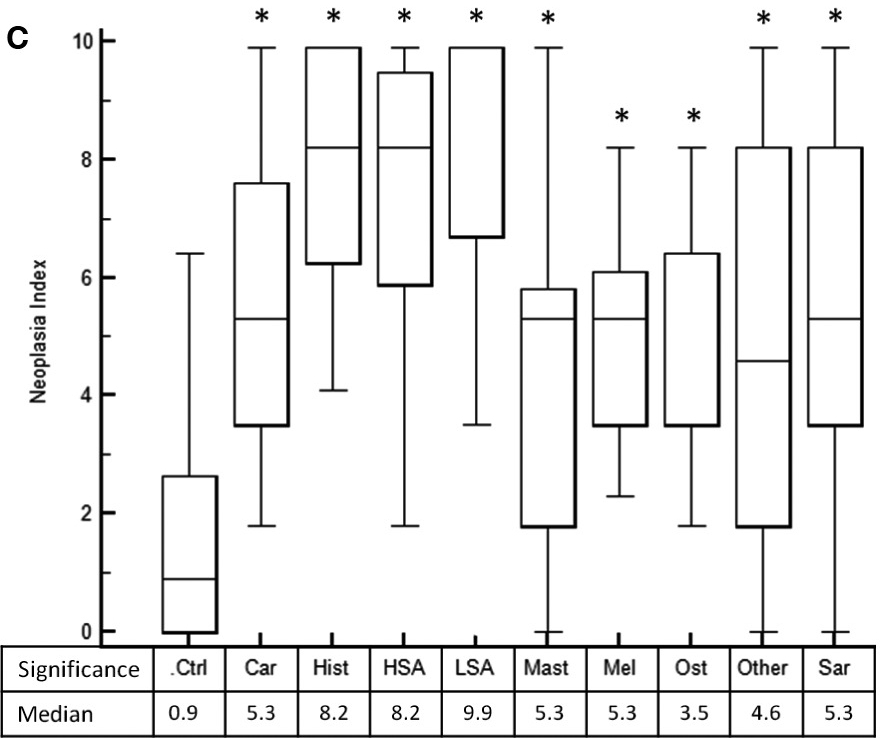
TK1, cCRP, and Neoplasia Index®
Increase with Tumor Grade
As tumors advance they become more poorly differentiated. This results in a higher rate of incomplete cell cycle replication (dysregulated replication), higher tumor burden, and a higher rate of cell growth. All three of these factors increase TK1 levels substantially. Further, since inflammation is a functional part of tumor metastasis, cCRP also increases. Together, the Neoplasia Index also significantly escalates as tumor grade advances.
This study demonstrated that as tumor grade advances so does TK1, cCRP, and the Neoplasia Index®.
